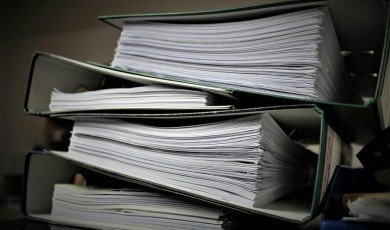
In a world that’s more interconnected than ever, precise communication across languages is not just a convenience—it's a necessity. As governments, trade negotiators, and political leaders engage in complex discussions and high-stakes negotiations, the need for impeccable interpretation becomes evident. From discussing trade tariffs to debating international agreements, diplomacy hinges on a clear exchange of ideas. Enter professional interpretation services: the unsung heroes ensuring no word is lost in translation, no subtlety missed, and no intention misconstrued.
The Critical Role of Interpretation in Global Politics
The fabric of modern diplomacy is woven from the threads of diverse languages and cultures. When world leaders meet at summits, parliaments, or trade talks, language barriers pose significant risks: miscommunication can cause delays, damage relationships, or even spark conflict. In this high-stakes environment, interpretation services become essential for building trust and nurturing cooperative relations.
As key players in these interactions, interpretation professionals channel the voices of diplomats, negotiators, and policymakers, ensuring that messages remain accurate and culturally sensitive. The choice of words, tone, and intent can have profound impacts on treaties, international disputes, and trade policies, making high-quality interpretation crucial to the diplomatic process.
Want to dive deeper into how interpreting differs from translation? Read more here: Interpretation and Interpreting Services: A Complete Guide
Interpretation: Bridging Political and Trade Communication Gaps
Whether at the World Economic Forum, United Nations, or bilateral trade talks, governments and organizations depend on specialized interpretation to reach consensus on pivotal issues. Here’s a deeper look at how interpretation services power global political—and particularly trade—dialogue:
Face-to-Face Diplomacy with On-Site Interpretation
For high-level meetings, nothing matches the personal touch of an on site interpretation agency. These agencies dispatch professional interpreters to meetings where nuance, body language, and the context are integral to understanding. In summit rooms where every gesture and inflection matters, interpreters act as both language and cultural bridges. They ensure discussions on tariffs, sanctions, and treaties are exchanged seamlessly and accurately.
The trust built in these moments can make or break an agreement, and only through top-class on-site services can negotiators be certain that language differences will not stand in their way.
Nationwide Reach with Over-the-Phone Interpretation
In an age of rapid response and global outreach, governments and institutions frequently turn to the expertise of an over the phone interpretation company. Especially in times of fast-moving trade disputes or emergency diplomatic calls, over-the-phone interpretation connects parties instantly, anywhere in the world.
This method’s efficiency is vital for ministries of commerce, customs officials, and trade representatives who negotiate tariffs and resolve cross-border regulatory questions. Instant linguistic support removes hurdles and promotes swift, decisive communication—often the difference between settling disputes or escalating them.
Modern Diplomacy in the Digital Age: Video Remote Interpreting
As digital transformation touches every corner of government, video remote interpreting services are becoming the new standard. Political summits, diplomatic panels, and virtual trade missions now regularly use this format to include participants from across the globe, removing the need for costly travel and reducing carbon footprints.
Video-based interpretation allows for real-time visual cues—crucial in formal negotiations and public hearings. With this technology, politicians, trade officials, and negotiators interact almost as if sharing the same room, with every word, gesture, and expression faithfully conveyed. In a post-pandemic world, where many diplomatic processes have shifted online, these services enable ongoing cooperation even amid global crises.
Beyond Words: Interpretation in Law, Policy, and International Trade
Interpretation’s importance isn’t confined to summits and bilateral deals. Government agencies and courts worldwide rely on skilled interpreters to uphold due process, maintain the integrity of political communication, and ensure access to justice for all.
For example, the U.S. judiciary maintains robust guidelines and resources for legal interpretive services, recognizing their role in fair trials and diplomatic exchanges alike. Whether it’s customs disputes, arbitration of sanctions, or testimony in WTO controversies, reliable interpretation ensures no party is left unheard or misunderstood.
This extends to the implementation and negotiation of trade tariffs—a field where the economic stakes are enormous. The precise meaning of official statements or legal clauses can impact billions in trade volume. Interpretation agencies with trade policy expertise—and industry-specific terminology—are essential partners in formal trade negotiations.
The People Behind the Words: Skills and Ethics
Interpreters working in political and trade environments require rare expertise. They must master not only languages, but also diplomatic protocol, confidentiality, and sector-specific vocabularies, from legal to economic jargon. Every detail—whether interpreting the tone of a world leader’s speech or the technicalities of a trade agreement—matters when the price of error is measured in global headlines or market swings.
Professional interpreters also balance cultural sensitivity and ethical responsibility; they must remain impartial, maintain confidentiality, and interpret faithfully even in highly pressurized environments. As the international stage becomes more complex—with shifting alliances, emerging markets, and evolving regulatory standards—these qualities are more essential than ever.
Technological Advances and the Future of Diplomatic Interpretation
Advances in technology are rapidly reshaping interpretation in diplomatic contexts. Artificial intelligence and machine translation tools have made headlines, but human interpreters remain irreplaceable in sensitive, high-level negotiations. Machines can support with terminology databases and background research, yet the human touch is essential for interpreting tone, idiom, humor, and intent.
Hybrid models—combining in-person interpretation with advanced video remote interpreting services—are expected to dominate the future of global political communication. These approaches offer flexibility for diplomatic engagements of all types, from emergency calls to summit-level negotiations, ensuring every participant is heard.








